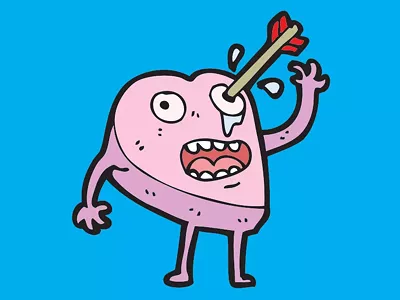With Pokemon in the toilet, trading-card giant and Bazooka gum creator Topps needed a boost in its entertainment-card category. Revenues had fallen dramatically, from $143.8 million in 2000 to just $29.7 million last year. The news wasn't all bad, though: Boosted by tie-ins from "Lord of the Rings: The Fellowship of the Ring," "Monsters, Inc." and, yes, Sept. 11-exploiting Enduring Freedom Picture Cards, the fourth quarter of 2001 surged.
That 90-card set of cardboard propaganda contains "biographical information on the civilian and military leaders entrusted to guide us through this fight, statistical data and photos of military hardware," according to the Topps Web site (topps.com/enduringfreedom.html). Wait, it gets better: "Kids need to understand that the President (and his team) will keep them safe and that the evil-doers will be punished." The cards feature the good guys (Dubya, Ashcroft, Giuliani and the harder-to-remember Norman Mineta), the bad guy (bin Laden, of course) and a slew of bomb-dropping jets and battleships.
Ah, patriotism and capitalism combine: The line went out last fall, and stores now are close to sold out. A hobby store on East Colonial Drive reports that its box sets are gone, and only singles are left. No further shipments are expected.
Curiously, though Topps' Web site says the cards are sold at numerous stores including Target, Wal-Mart and 7-11, spokespeople for the latter two deny their chains ever carried the cards. A Topps spokesman failed to return phone calls and e-mails.
These cards are aimed at kids, which brings up a troubling point: At what point does red, white and blue patriotism become subtle indoctrination into a world of simplified conflicts? Certainly, these cards don't encourage children to think critically about oil politics, civilian casualties or the Bush administration's hawkish war machine.
It's not the first time Topps has jumped on the propaganda bandwagon. It published cards about both the Korean conflict and Gulf War. The latter were "highly praised by military leaders for their informative content," Topps' Web site boasts. But Topps isn't the only company making cards — and money — out of the tragedies.
U.S. Trading Cards (www.terroristtradingcardcentral.com) is marketing pro-Israel cards that label Yasser Arafat as "diabolical" and put a smiling George W. Bush into the Heroes of Freedom category. (The site links to a pro-Israel spin outfit.) Taking the shameless cake is Kingsley Barham, a Florida businessman hoping to cash in with Heroes of the World Trade Center trading cards with pictures and bio information of those who died. He's run into a slight glitch: Many families won't sign over rights to their deceased's images — and as of April he reportedly needed 120 more families on board to make a first run.
Anti-war activists have also gotten into the act. Web-based trading cards, courtesy of www.infinitejest.org, satirize all aspects of the terror war. They're free: The site offers images to be printed at will. The series is called American Crusade 2001, and it points out with Onion-like humor the faux pas of America's foreign policy as well as the unquestioning post-Sept. 11 press corps.
While many adolescents may not grasp all of the complex details of world events, shouldn't they be offered more than a simplistic viewpoint in which American politicians are always right, bin Laden is evil, and the F-15A Eagle launching a missile makes for a cool picture?






